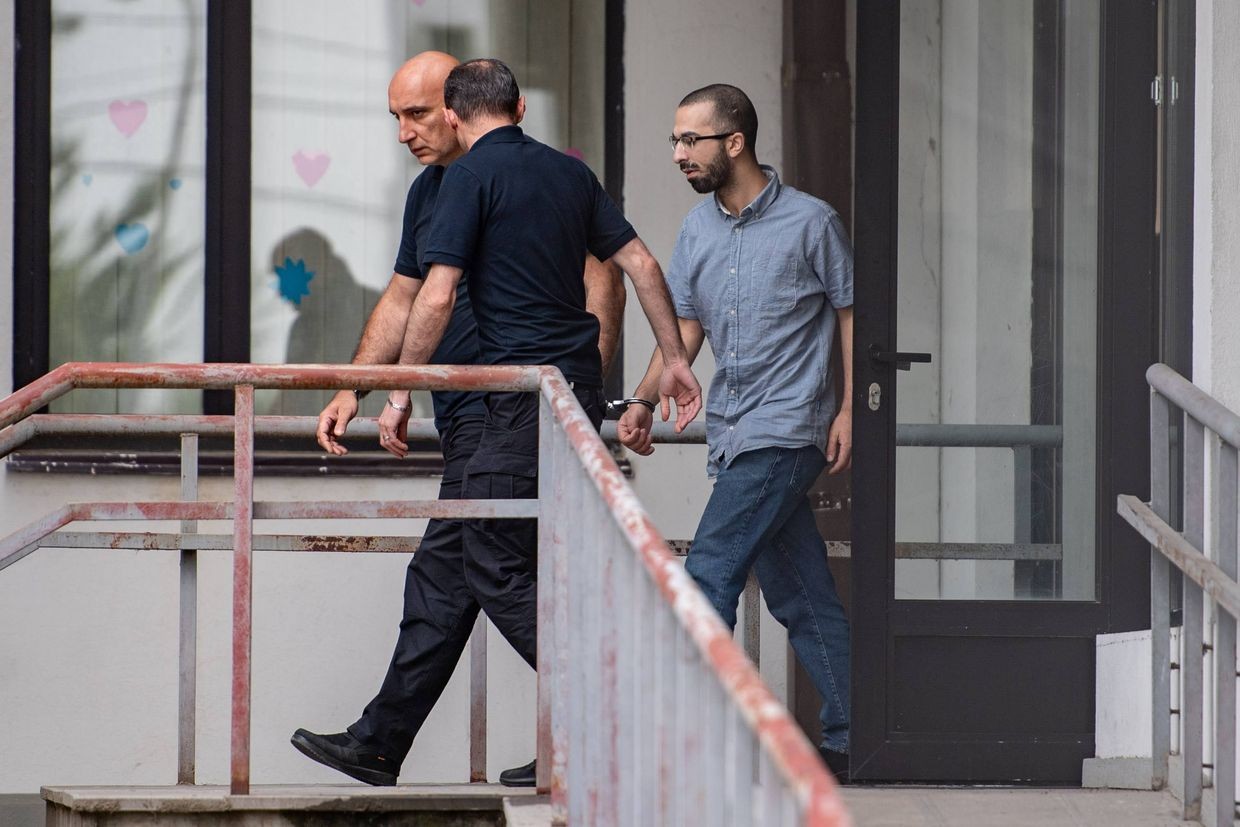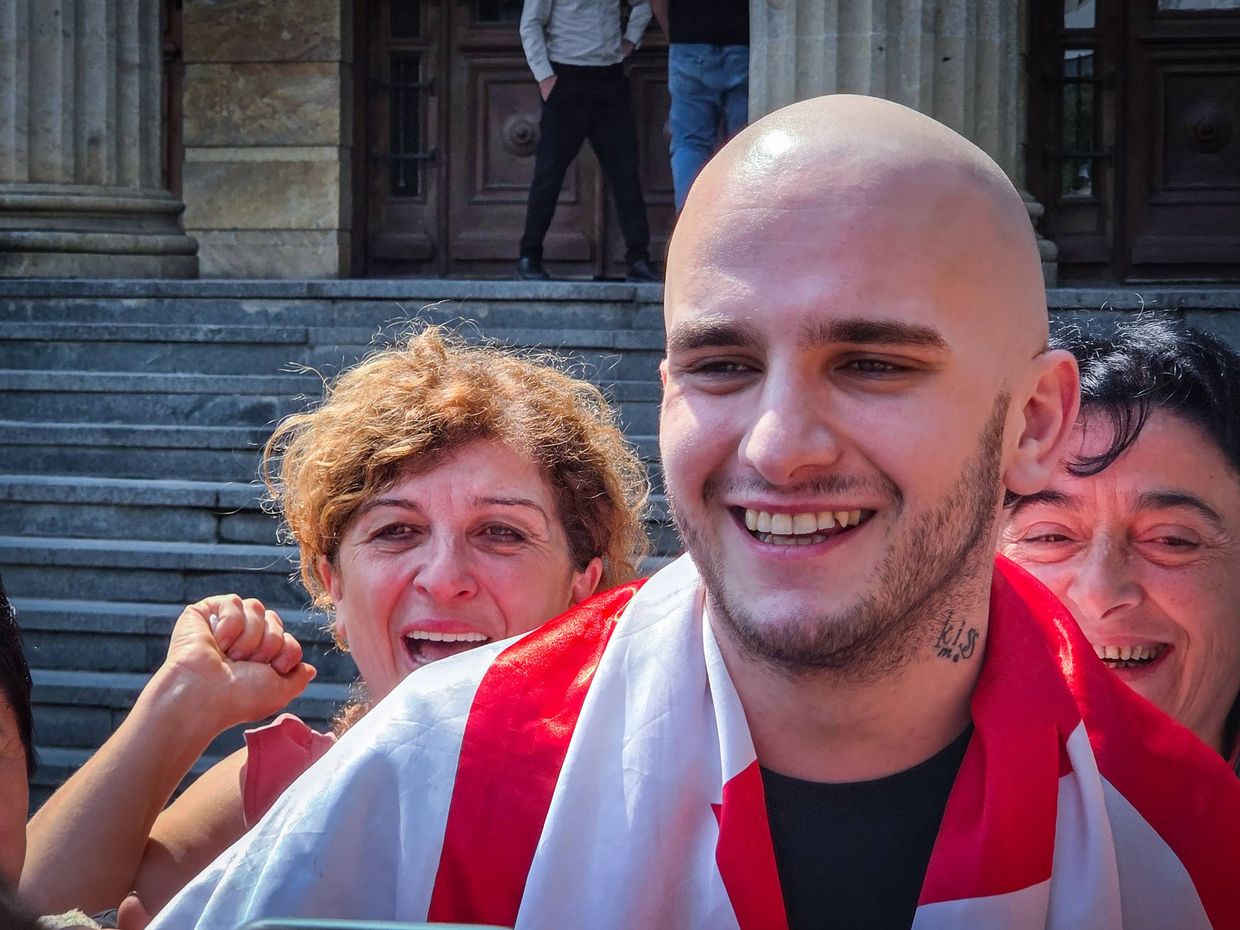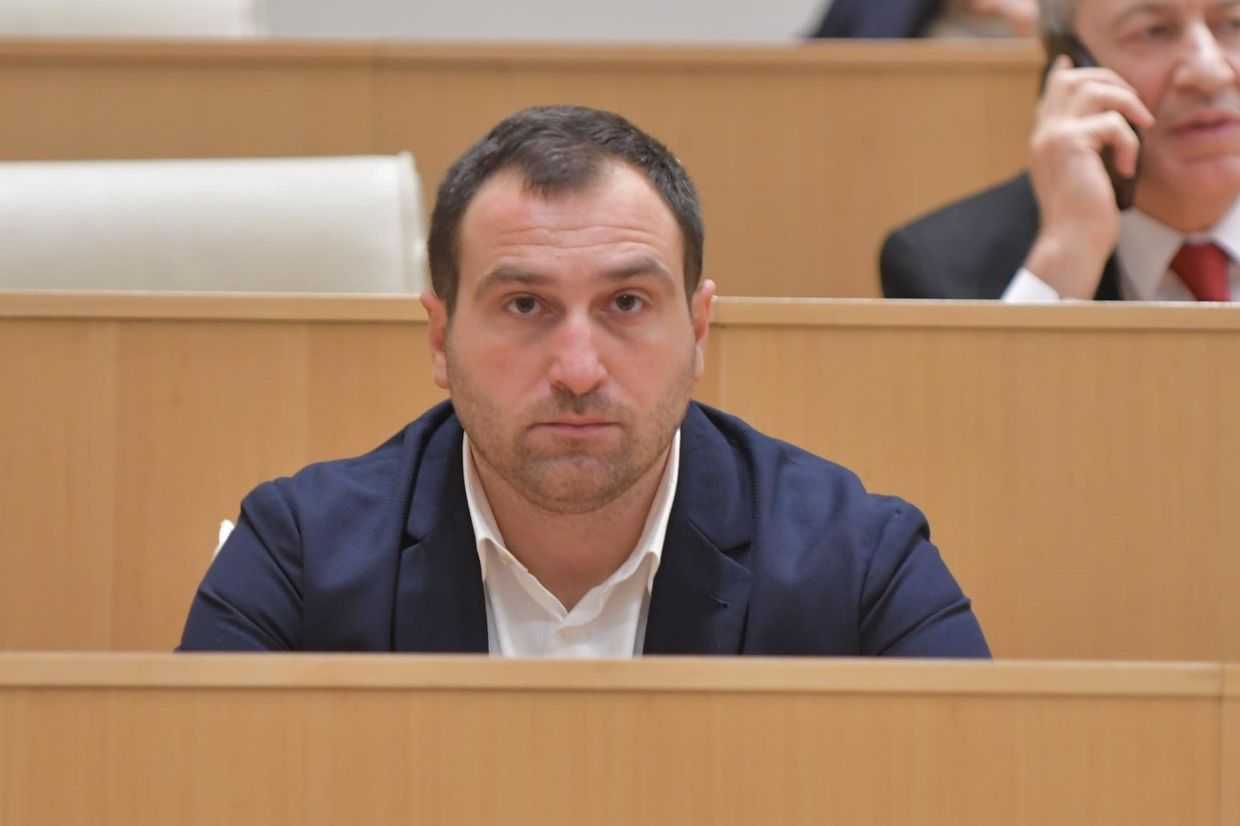
The Tbilisi City Court has sentenced Archil Museliantsi, who was detained during the early phase of the ongoing anti-government protests in Tbilisi, to four years in prison. He was accused of damaging a surveillance camera during a demonstration.
Judge Giorgi Arevadze announced the decision on Friday, more than eight months after 29-year-old Museliantsi was detained.
In a letter written before the verdict, Museliantsi thanked his supporters and urged them to continue the fight for a better future.
‘I’m writing this letter in advance because I know they will sentence me. They will carry out this order anyway’, he wrote.
He said that he is not worried about the imprisonment, because ‘on the other side is the country and its future’.
‘Even if they sentence me to six years, I am ready to serve the unjust term, because my homeland is my dignity’, Museliantsi wrote in the letter, at the bottom of which he drew the Georgian flag.
Alleged assault, blackmail and isolation
Museliantsi was administratively detained along with his friend Vakhtang Gagnidze as they were entering a cab on 30 November in central Tbilisi, at the start of the protests.
According to independent news outlet Indigo, the police later released Gagnidze, but a criminal case was launched against Museliantsi for allegedly setting fire to surveillance camera wires during the demonstration the day prior to his detention.
He was charged with arson, a crime punishable by up to six years in prison.
The evidence in the case, according to Indigo, included a video filmed by pro-government channel POSTV, showing a masked individual setting fire to a piece of paper and then moving it toward a camera transformer.
However, the footage cuts off at that point, and the next scene shows cables already burning with the masked person no longer there.
‘How do you think it’s possible that [the masked person] set the fire and someone filmed it without capturing the act itself? Most likely, that masked individual didn’t actually start the fire — he throws the paper, and someone else ignites it. It seems the footage of the actual ignition was cut, and another scene was spliced in’, Museliantsi’s lawyer Dimitri Vardiashvili told Indigo.
The lawyer claimed that the fingerprint expert’s report included in the case was also falsified.
Museliantsi has not admitted to the crime.
During the court proceedings, he spoke about the physical assault, psychological pressure, threats, and blackmail which he experienced during his detention. According to Vardiashvili, Museliantsi was beaten and then held for several days without access to legal counsel.
‘They didn’t include in the evidence the [shirt] that was bloody. They didn’t include it because it was bloody from the beating’, Museliantsi said during Friday’s hearing.
Vardiashvili further told media that after his detention, Museliantsi was shown photos of Georgian opposition leaders and was told that he would be released if he spoke out against any of them. Vardiashvili also stated that Museliantsi was tricked into signing an interrogation record admitting to the alleged crime at a time when he still did not have access to a lawyer.
Following his arrest, Museliantsi, whose parents are deceased, was taken care of by 61-year-old protester Tsaro Oshakashvili, a mother of two, who had met him before he was imprisoned. Oshakashvili helped him register for university entrance exams, which he passed.
The latest wave of protests in Georgia began on 28 November, when Georgian Dream announced the suspension of the country’s EU membership bid. The first phase of demonstrations saw heavy clashes and brutal police violence against protesters and journalists.
Hundreds of people have been detained, with criminal cases launched in over 50 instances. Several protesters have already been convicted and sentenced to years in prison. Their release — along with calls for new parliamentary elections — has become one of the demonstrators’ central demands.







![Baia Margishvili standing in central Tbilisi with a sign reading: ‘The Prosecutor’s Office [is] a punitive squad. How many more innocent people will you put in prison?’ Photo: Mariam Nikuradze/OC Media.](/_next/image/?url=https%3A%2F%2Fassets.bucket.fourthestate.app%2Foc-media-prod%2Fcontent%2Fimages%2F2026%2F02%2Fcalls-for-sanctions-and-raids-19-10-25-48.jpg&w=3840&q=50)



